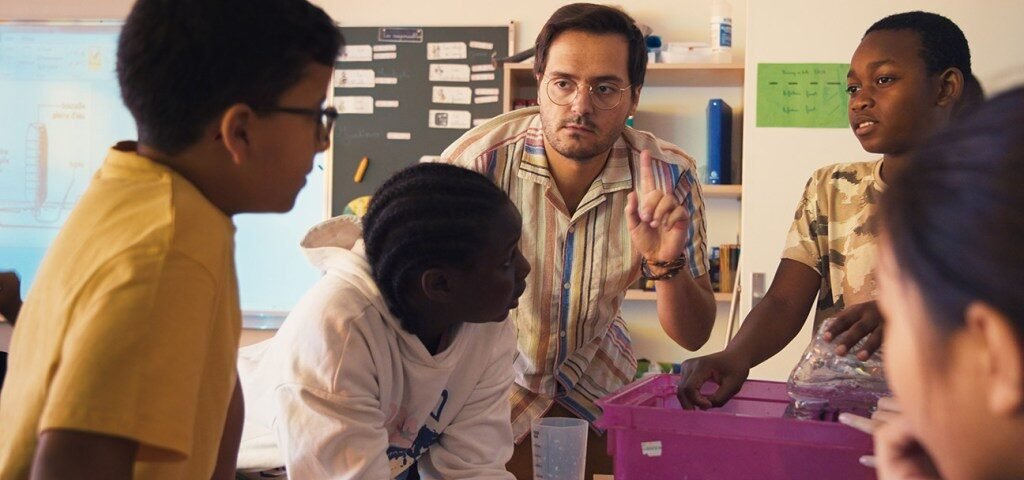


‘Gazer’ Review: A Striking ‘Memento’-Like Noir That Keeps Viewers at a Stylish Distance
June 2, 2024


‘Summer Camp’ Review: Diane Keaton, Kathy Bates and Alfre Woodard in a Would-Be Romp Full of Strained Teachable Moments
June 4, 2024In her latest doc, which premiered at Cannes, the French director observes the daily life of a primary school in a suburb of Paris.
Elementary
Quietly inspiring.
From the opening moments of Elementary (Apprendre), Claire Simon establishes a quiet respect for her primary-school-aged subjects. The camera stays low, framing the excited, nervous and eager faces of students on the first day of class at Makarenko Public Elementary School in the Parisian suburb of Ivry-sur-Seine. As the mother of one particularly shy student speaks to a teacher, Simon, assuming the perspective of the young kid, tilts her camera upward to look at the pair.
Elementary is a quieter and more distant work than Our Body, but it is no less poignant. The film gains a greater resonance when considered within the context of the French public school system, which suffers from chronic underfunding.
Teachers at Makarenko approach their job with an understanding of the linked lives between home and school. Early in the film, one instructor reassures a parent about enrollment documents and supplies, telling the mother that he can get her son a backpack and other necessities. In a later scene, another teacher warns students not to disturb a child who has fallen asleep in class. He needs his rest, she says to the room before walking the rest of the group through an activity. When an autistic student needs a break from the stimulation of the classroom, we see a teacher take the child to the playground, where he rides around in circles on his scooter.
Through these moments, Simon shows how public school teachers are more than just tutors; they are caregivers, too. Their approach aligns with the theories of the Soviet educator Anton Makarenko (one wonders if the school is named after him), who believed that the teacher’s task was to direct the development of a child as they exist in this “highly complex world of ambient activity” and infinite ways of relating to others. The reality of that responsibility is not always easy, and although Simon’s doc is firmly optimistic, the filmmaker does balance these scenes of alternative learning with ones in which the teachers also struggle.
Elementary moves in a loosely chronological order — starting with the first day of school and closing with a graduation ceremony for its oldest pupils. In between these points, Simon meanders through the halls, loiters on the playground and dips in and out of classrooms. Even when she offers glimpses of the teachers’ dedication, Simon insists on the students as subjects. Most of Elementary observes children learning how to negotiate their existence and relationships in the classroom. Moments witnessed on the playground remind us of the casual cruelty of social orders and how young people are when they start defining themselves against others.
Still, Elementary is an accomplished project. Not only does Simon meet these students on their own terms — she also handles their trust with an inspiring level of care.





